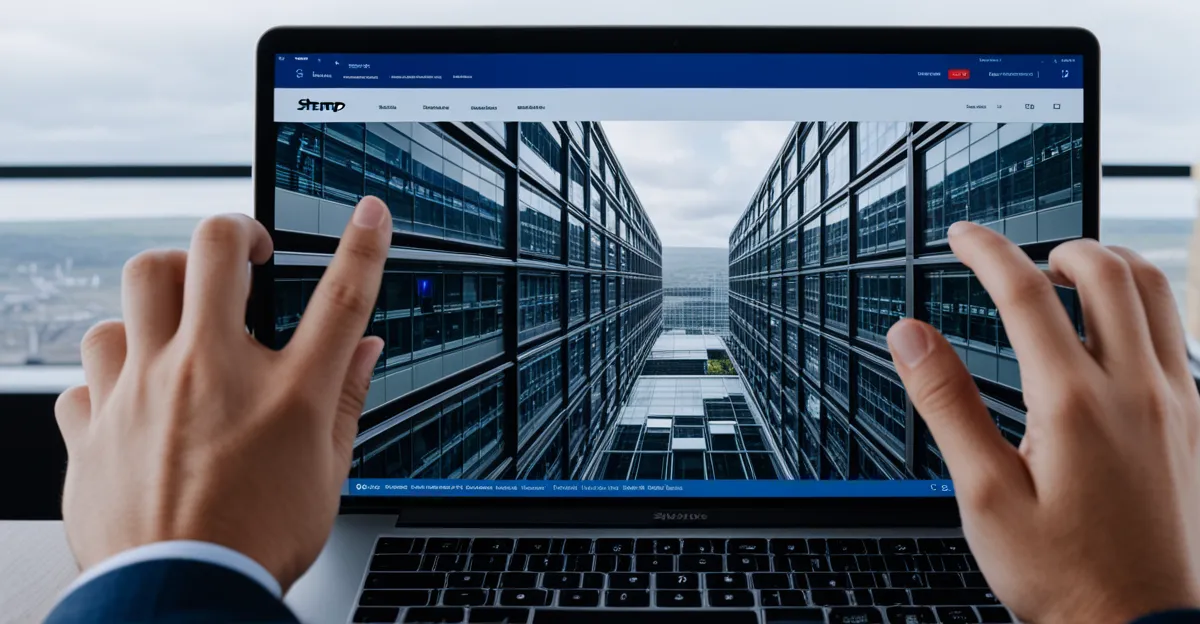Latest Innovations Transforming UK Remote Work
The UK remote work solutions landscape has rapidly evolved, driven by a surge in demand for flexible, efficient, and secure working environments. Recent innovations in UK business tech focus heavily on optimizing productivity while accommodating diverse workforce needs. One key advancement is the development and wide adoption of cloud-based platforms that enable seamless collaboration across locations. These platforms leverage enhanced connectivity and scalable infrastructure, allowing businesses to maintain continuity regardless of physical distance.
Another significant breakthrough in the latest remote work technology in the UK is the integration of AI-powered automation into everyday workflows. From intelligent scheduling assistants to advanced data analytics tools, this technology reduces manual tasks and enables better decision-making. UK businesses adopting these solutions report increased operational speed and improved accuracy in routine functions.
Additional reading : How Will Emerging Technologies Transform the Future of the UK Tech Industry?
Moreover, hardware innovations specifically designed for remote setups are transforming how employees interact with their work environment. Ergonomically designed devices and secure business gadgets tailored to UK standards are now commonplace, further bridging the gap between office and home. This innovation increase not only boosts employee comfort but also enhances productivity.
Collectively, these advancements in UK remote work solutions empower organizations to offer greater workforce flexibility while simultaneously driving enhanced business performance. The positive impact of these technologies is reflected in measurable gains such as reduced downtime, improved collaboration, and elevated employee satisfaction within UK companies.
Also to read : How Can Recent Advancements in UK Technology Shape Our Future Economy?
Breakthrough Software and Platforms for Remote Work
Recent breakthroughs in UK remote work platforms have significantly advanced the capabilities of distributed teams. Leading remote work software UK solutions emphasize seamless integration of communication, project management, and file sharing, all optimized for remote collaboration. These platforms are designed to handle complex workflows, enabling teams to work synchronously despite geographic separation.
How is AI transforming these remote work applications? AI integration automates routine tasks such as scheduling and notification management, enhancing efficiency while reducing manual intervention. Furthermore, AI-powered analytics provide insights into team productivity patterns, helping managers make data-driven decisions to optimize workforce output.
Emerging trends in collaboration tools UK include virtual office environments that replicate physical office dynamics through immersive interfaces and persistent chat rooms. These innovations foster informal interactions and spontaneous idea exchange, previously limited to co-located colleagues. Such tools also support real-time document co-editing with intelligent version control, streamlining teamwork across departments.
Incorporating these advancements, UK businesses adopting the latest remote work technology experience increased responsiveness and agility. The emphasis on integrated platforms mirrors a broader trend where software ecosystems facilitate end-to-end remote workflows, making distributed work not only feasible but highly efficient.
Advances in Hardware Supporting Remote Work
Remote work hardware UK advancements are pivotal in complementing software innovations to create a comprehensive remote working environment. Recent developments focus on business devices engineered specifically to meet the demands of home and flexible working setups common throughout the UK. These devices integrate enhanced security features aligned with UK data protection standards, ensuring safe remote operations even beyond corporate networks.
Ergonomic solutions have become a cornerstone of remote work hardware UK. Employers increasingly provide adjustable chairs, standing desks, and input devices designed to reduce strain and increase comfort during prolonged computer use. Such ergonomic technology directly improves productivity by minimizing fatigue and discomfort, which are common issues for home workers lacking traditional office equipment.
Many hardware solutions emphasize portability without sacrificing performance, addressing the varied needs of UK remote workers who may shift between locations or require quick setup. Business devices are now often equipped with integrated VPN capabilities, biometric authentication, and optimized battery life—essential innovations that support secure and efficient work outside conventional office spaces.
In summary, the latest remote work technology in the UK includes a suite of hardware advancements that prioritize security, comfort, and mobility. These improvements enable businesses to maintain high operational standards while enhancing employee well-being and flexibility, supporting the broader shift toward long-term remote and hybrid working arrangements.
Cybersecurity Enhancements for Distributed Teams
Strengthening UK remote work cybersecurity is critical as more businesses adopt distributed workforce models. To ensure secure remote access, UK companies increasingly implement advanced VPNs that encrypt all data exchanged between employees and corporate networks. These secure tunnels protect sensitive information from interception, a vital safeguard given the prevalence of cyber threats targeting remote endpoints.
Zero-trust networks have gained traction in UK remote work security strategies. This model requires continuous verification of user identities and device integrity, significantly reducing risks posed by compromised credentials or unauthorized devices. Such protocols align with stringent data protection UK laws, ensuring that compliance is maintained while enabling flexible remote operations.
Encrypted communication channels enhance data confidentiality during virtual meetings and messaging. Encryption secures voice, video, and text transmissions against eavesdropping, thereby preserving organizational privacy. Coupled with multifactor authentication and regular security audits, these measures form a comprehensive defense tailored to protect remote teams from evolving cyber risks.
In addition to technology, awareness and training initiatives are vital. The UK remote work landscape benefits from educating employees on recognizing phishing attempts and securing home networks, further mitigating insider threats. Together, these advancements in UK remote work cybersecurity balance robust protection with user accessibility, fostering trust and resilience in dispersed business environments.
Government and Industry Initiatives Accelerating Adoption
The UK tech policy remote work framework plays a crucial role in fast-tracking the integration of latest remote work technology across industries. Targeted government initiatives provide funding and support programs, enabling businesses to adopt cutting-edge UK remote work solutions with reduced financial risk. This backing not only encourages innovation but also helps standardize technology use, creating a consistent ecosystem for distributed workforces.
Prominent tech hubs and incubators in the UK serve as breeding grounds for innovative startups developing advanced remote work software UK and hardware. These centers connect entrepreneurs with resources, expertise, and industry partners, accelerating product development and market entry. Such collaboration ensures the continuous flow of fresh ideas that address the evolving needs of remote teams.
Public-private partnerships represent another strategic approach to promote widespread adoption of UK remote work solutions. By aligning governmental bodies with industry leaders, these alliances facilitate knowledge sharing, infrastructure investments, and training initiatives that enhance overall workforce readiness. Consequently, companies both large and small benefit from enhanced access to robust technology platforms and support networks.
Collectively, government and industry efforts underpin the scalable deployment of remote work innovations. They create an environment where organisations can confidently transition to flexible models, leveraging advanced technology to improve productivity and employee satisfaction across the UK.
Case Studies: Success Stories from UK Businesses
Examining UK remote work case studies reveals how real companies successfully leverage the latest remote work technology to enhance operations. For instance, a leading UK financial services firm implemented bespoke UK remote work solutions combining AI-driven scheduling tools with secure cloud platforms. This integration resulted in a 30% rise in employee productivity and a marked improvement in cross-departmental collaboration, demonstrating tangible business impact.
Another notable example comes from the education sector, where a UK university adopted advanced remote work software UK to support hybrid teaching models. By incorporating intuitive collaboration tools UK designed for seamless virtual interaction, they maintained student engagement despite physical distance. The deployment reduced operational costs by 25%, showcasing the efficiency gains achievable through targeted digital transformation in the UK.
These case studies underscore how tailored UK remote work solutions drive measurable benefits including enhanced engagement, reduced downtime, and streamlined workflows. They provide valuable lessons emphasizing the importance of selecting technologies aligned with specific organizational needs, thorough training, and continuous evaluation to maximize return on investment. Collectively, these successes testify to the transformative power of remote work innovations across diverse UK industries.







